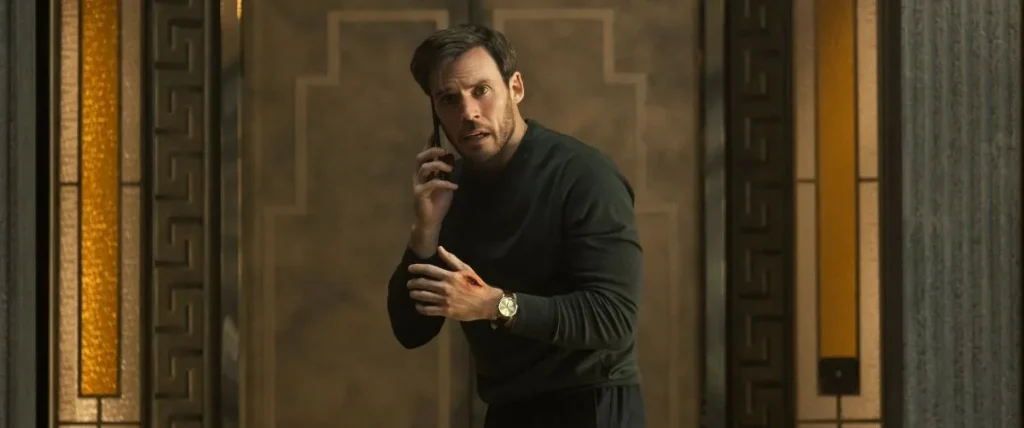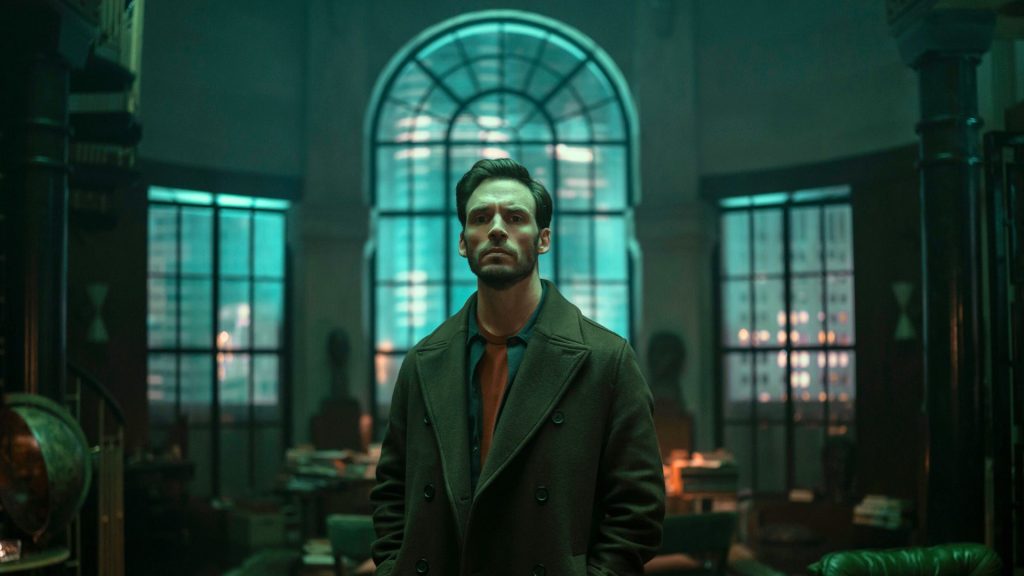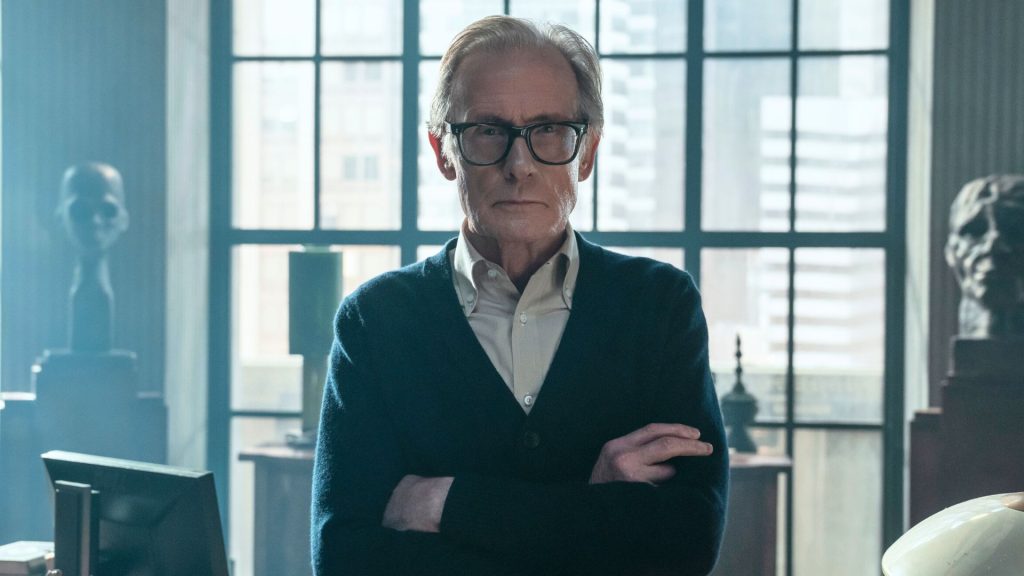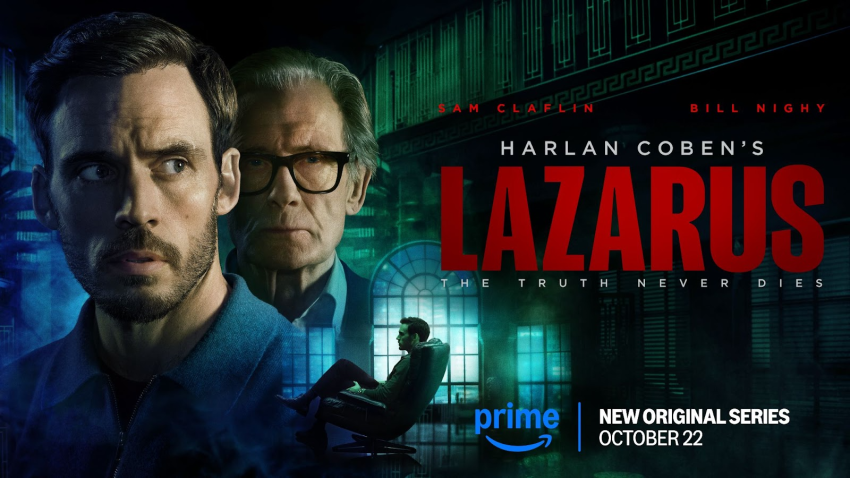There’s only one way to describe Lazarus overcomplicated, weird, and just plain strange.
This might be one of the weakest Harlan Coben adaptations yet, which is disappointing because it had so much potential.

Joel Lazarus, or “Laz” (Sam Claflin), follows in his father’s footsteps as a psychiatrist. To clear up any confusion early on the father is Jonathan, the son is Laz. Honestly, that’s about the only thing in this series that isn’t convoluted.
The story kicks off in 1988 when Laz walks in on his twin sister’s murder. He sees the killer flee, and the trauma has haunted him ever since.
Fast forward to the present day: Jonathan apparently takes his own life, leaving behind a note that reads, “It’s not over.”Laz returns home, convinced his father didn’t commit suicide.

From here, the plot takes a surreal turn. Laz sits in his late father’s study when one of Jonathan’s patients shows up for her appointment. She doesn’t seem to care that he isn’t Dr. Jonathan and immediately unloads her dark thoughts about her partner Neil and a mysterious stalker. Things only get stranger from there.
Episodes 1 through 4 introduce a rotating cast of patients including, bizarrely, Jonathan Lazarus himself, whom Laz appears to be talking to in his father’s study. The storylines pile up, but none of them connect in a convincing or satisfying way.
By episode 4, I’d lost interest. The plot had become so far-fetched it was hard to take seriously. Luckily, I stuck with it episodes 5 and 6 finally cleared up most of the confusion. Just when it seemed the show had tied up all its loose ends, though, the finale delivered no real payoff. Instead, it left me wondering why I’d bothered in the first place.

I could see the intended emotional parallel between Joel and Jonathan both men shaped by trauma but Joel’s son Aiden felt like an afterthought. His introverted behavior didn’t align with either of them, which made me question whether the show was hinting at a “nature vs. nurture” theme or simply didn’t think it through.

Bill Nighy (Jonathan) once again plays his usual stoic, melancholy role and honestly, it’s getting tired. Sam Claflin, on the other hand, completely carries the series. I’ve admired him since Love, Rosie a completely different genre and here he proves his range. Unfortunately, several of the other performances felt stiff and theatrical, as if the actors were reading from a stage script rather than living their roles.
As a longtime Harlan Coben fan, Lazarus left me deflated. It could have been gripping, eerie, and emotionally layered instead, it’s just tangled, hollow, and strange.


